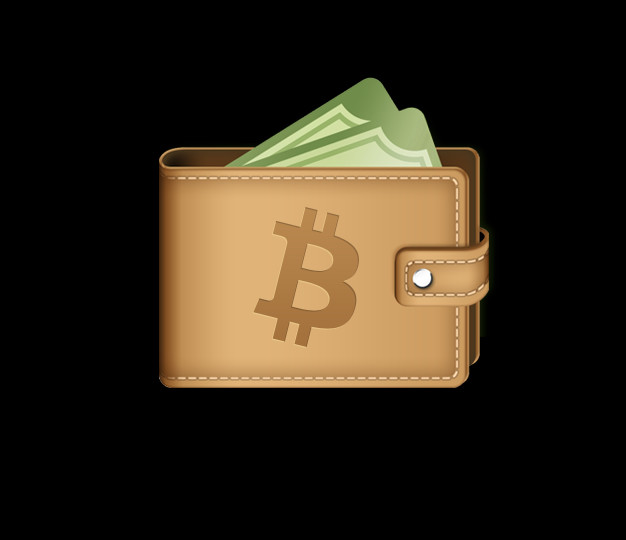This website use cookies to ensure you get the best experience on our website.

Admin 2017
Storing Crypto Currencies
Just as someone would use their wallet to keep their money inside it, a cryptocurrency wallet is a piece of software or hardware (more about this later on). The primary function of this wallet is to let your keep track of and hold your digital assets. In addition to this, it can also function as your "bank account" by allowing you to receive or send funds.
But why would you need such a wallet?
Most people who enter in crypto and buy their first crypto assets tend to keep such valuables inside the same exchange where they purchased them for. But, are you aware of what risks this could involve? Maybe they do not remember or weren't present during the Mt. Gox's hacking event. For all those who kept their funds inside Mt. Gox, it meant a $460 Milion nightmare and had all their assets gone overnight!
When you create a wallet, you hold the keys to it; thus, you can access such wallets. If your crypto is stored anywhere else where you don't have such keys, then I'm sorry to inform you that it's not your crypto anymore. The genuine holder can at any time intentionally or unintentionally move those funds without your consent.
You need to have your wallet and hold your keys in a safe place - but where?
When creating the wallet, you will have 2 keys, one being the public key, which can also be referred to as the address of such a wallet and a private key (this is where people will send you funds). You will also have a private key, a string of 64 characters generated from a 12-word seed phrase. In other words, your password for such a wallet should always be kept as safe as possible. Always keep in mind that whoever has your private key has total control over your funds, and there's no way to stop them.
We can categorize wallet into 4 different main types;
- Hardware / Offline / Cold Wallet
- Mobile Wallet
- Desktop Wallet
- Paper wallet
Hardware / Offline / Cold Wallet - Imagine this as a pen-drive or some kind of external storage which you can connect to your computer. Transfer your keys onto it and then store them offline away from your computer. Some big names in this space are Ledger or Trezor. Ledger supports over 1200 cryptocurrencies, while Trezor supports over a thousand. This is probably the safest way how to store your crypto.
Mobile Wallet - This is essentially an app that you download on your mobile device to store your crypto. Remember that if the wallet is not showing your keys, it probably means that the wallet is custodial. (e.g. Coinbase grant you a mobile app, yet it is custodial as they control your coins.) Trust or Exodus mobile apps are recommended if you decide to create a mobile wallet.
Desktop Wallet - This type of wallet is an application that you install on your computer. Everything is gets stored on your computer, including keys. These might be much more advanced than Mobile wallets and can be used even offline (to a limited extent).
In both Mobile and Desktop cases, it is always imperative that you keep a backup of your seed phrases or private keys. Failing to do so might lead you to lose all your coins if anything happens to these devices.
Paper wallet - Thi is essentially a piece of paper where you copy all your public and private keys. It can also be a QR code that you print from your computer, making it easier to scan at a later stage. This might sound like the cheapest way to store your keys, yet it is very secure and offline; thus, one needs to physically steal your paper to get hold of your crypto.
Which is the best hardware wallet?
Ledger Nano (S and X) - The most popular hardware wallet brand in the world, currently sells 2 different sticks. The S is the cheaper alternative, but if you handle transactions between multiple cryptocurrencies frequently, the Nano X's more extensive storage should be more convenient. Nano X also has Bluetooth 5.0 support.
Trezor (One and Model T) - Trezor is the other famous hardware wallet brand. The Trezor One is the cheaper alternative ($59). Concurrently, the Model T is more expensive but comes with extended functionality and supports cryptocurrencies such as ADA, XMR, XTZ, etc.
When buying such devices, always make sure you buy off a proper reseller or preferably directly from the source. If you notice any type of tampering on the package or on the device itself, please contact the supplier immediately. If someone managed to get hold of your device before you, they might have your keys or installed some type of malware; thus, any funds coming in contact with such a device might be at risk.
What if I want to use a desktop wallet?
Your best bet is probably Exodus which is a very user-friendly and easy to follow, safe wallet. It is available on Windows, Mac and Linux as well.
I want to use a mobile wallet!
In that case, we would suggest you using Trust wallet. Trust wallet is supplied by Binance, and we have used it for the past years. We've also swapped mobile phones, and it was a breeze moving any keys from one mobile to another. Trust wallet is available on both Android and IOS.
Our suggestion is that whichever wallet you chose to use and keep, always try to consolidate everything into one (1) wallet. This will make it simpler to control and maintain over time.
Some last tips to keep in mind
- Always pay attention and double-check what you are typing and clicking; once a transaction is done, it is not reversible.
- Never trust anyone. No one will give you double or triple what you send them for nothing. Also, there is nothing like guaranteed gains or magical robots, which will make you loads of money with some super algorithm - they are all scams.
- Never use any website to generate your keys. There have been cases where a site was generating such keys for people while secretly keeping track of them. After it had accumulated many wallets, the site owner decided to empty all those wallets, leaving owners with nothing.
- Storing your crypto off exchanges does also come in handy when airdrops and hard forks come into play. We will cover these two topics in separate articles. Yet, both can be strong points to consider versus keeping your crypto over exchanges.
At Bitponder, we don't want to sell you anything except for the knowledge that empowers you to take your own decisions. If you have any question, feel free to reach out via e-mail or book a sitting through our chatbot.

